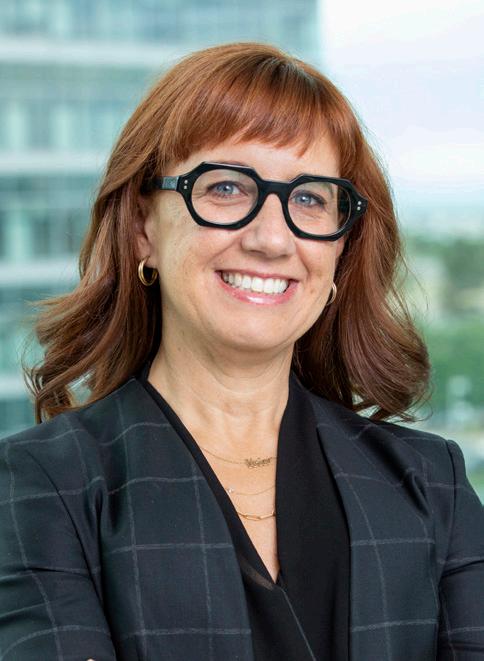2 minute read
Pursuing oncology
Next Article
Camidge enjoyed almost every specialty he tried during his clinical training (except surgery; he’s been known to faint at the sight of blood when not in doctor mode), but it was in oncology that he began seeing the nexus of scientific molecular biology and patient care.
“It was holistic, and that really drew me,” he says. “Cancer overshadows everything else in life. As an oncologist, you work with people from different specialties and disciplines, and clinical research–asking questions directly at the patient level–is baked into the model. Nobody in oncology is like, ‘We’re done, we’ve sorted cancer,’ and that was very appealing from the get-go. There’s always the perception that you can do better.”
After working at hospitals in England and Scotland, Camidge became the test pilot for a new UK program that combined medical oncology with clinical pharmacology and drug development. As part of that training, Camidge spent 18 months on attachment as a company physician at AstraZeneca. The experience helped him see past the traditional “us vs. them” mentality that colors many interactions between medicine and the pharmaceutical industry.
During his time with AstraZeneca, the head of oncology at Cambridge University approached Camidge with an opportunity to complete a fully funded, two-year exchange fellowship in the United States. After meeting Gail Eckhardt, MD, former head of the Division of Medical Oncology in the CU School of Medicine, at a conference, and learning more about the growing amount of drug development happening at CU, Camidge arrived in Colorado in October 2005.
Even though he had been told over and over that he shouldn’t combine new drug development with an interest in lung cancer because the patient mortality rate was too high, that’s exactly what he did, carrying on the torch lit by Paul Bunn, MD, who largely developed the lung cancer program at CU.
Cancer changes everything
After becoming a faculty member in 2007, Camidge eventually was named director of the Thoracic Oncology Program, helping to grow it into a nationally and internationally recognized center that accrues about 40% of lung cancer patients into clinical trials–more than double the rate of the next best academic lung cancer program in the country and more than 10 times the national average.
Camidge’s research in Colorado has focused on the development of new treatments and new insights into the understanding of non-small cell lung cancer. Many of his highly cited papers are the culmination of developing very targeted therapies for different subtypes of lung cancer based on specific genetic changes in the cancers.
“What has been exciting is doing research in the gaps between clinical trials,” Camidge says. “Every time you see something that no one has seen before and prove it’s real, and then dig down to ask why it happens and how it can help people is hugely exciting.”
In addition to patient care and research, Camidge is committed to mentoring early-career researchers and clinicians, which he is able to do locally, as well as nationally and internationally, in his role as director of the Academic Thoracic Oncology Medical Investigators Consortium.
“For me, this is about taking whatever I’ve learned, good and bad, and trying to help other people have a slightly easier task and make the right decisions for their career,” he says. “Nobody in oncology, myself included, is content with the level of oncology care, so there’s always a push for daily improvement, daily research to try and prove that this is better than that.
“Oncology at its best is very forward-thinking, just trying to push the envelope constantly with a big-picture view of patient care. Cancer is urgent, and a diagnosis of cancer suddenly strips away everything extraneous. But a future where a cancer diagnosis is just a footnote, not a headline in someone’s life, is the future we all want to be aiming for.”









